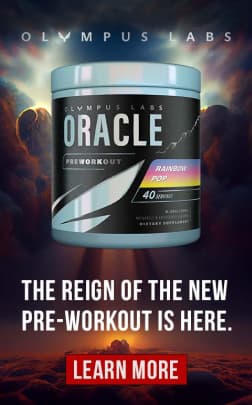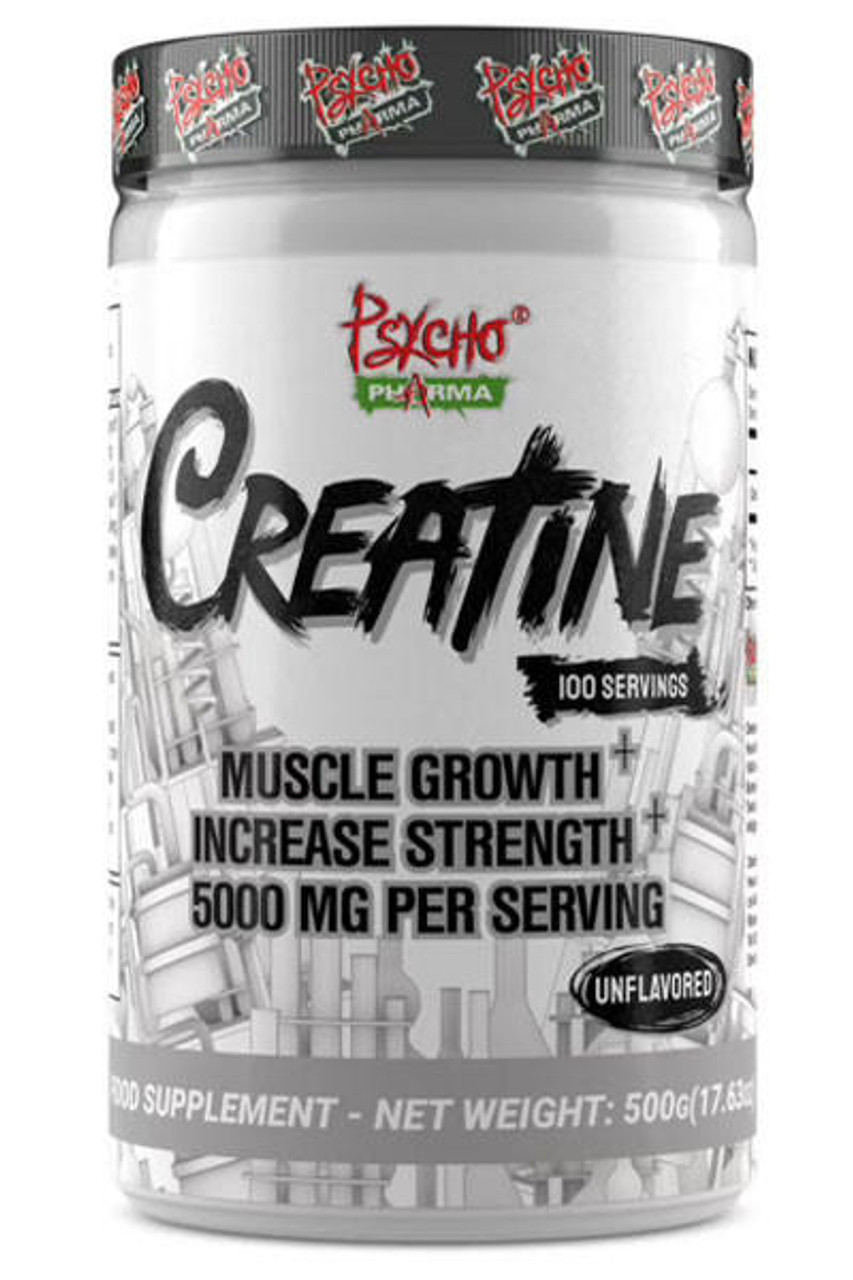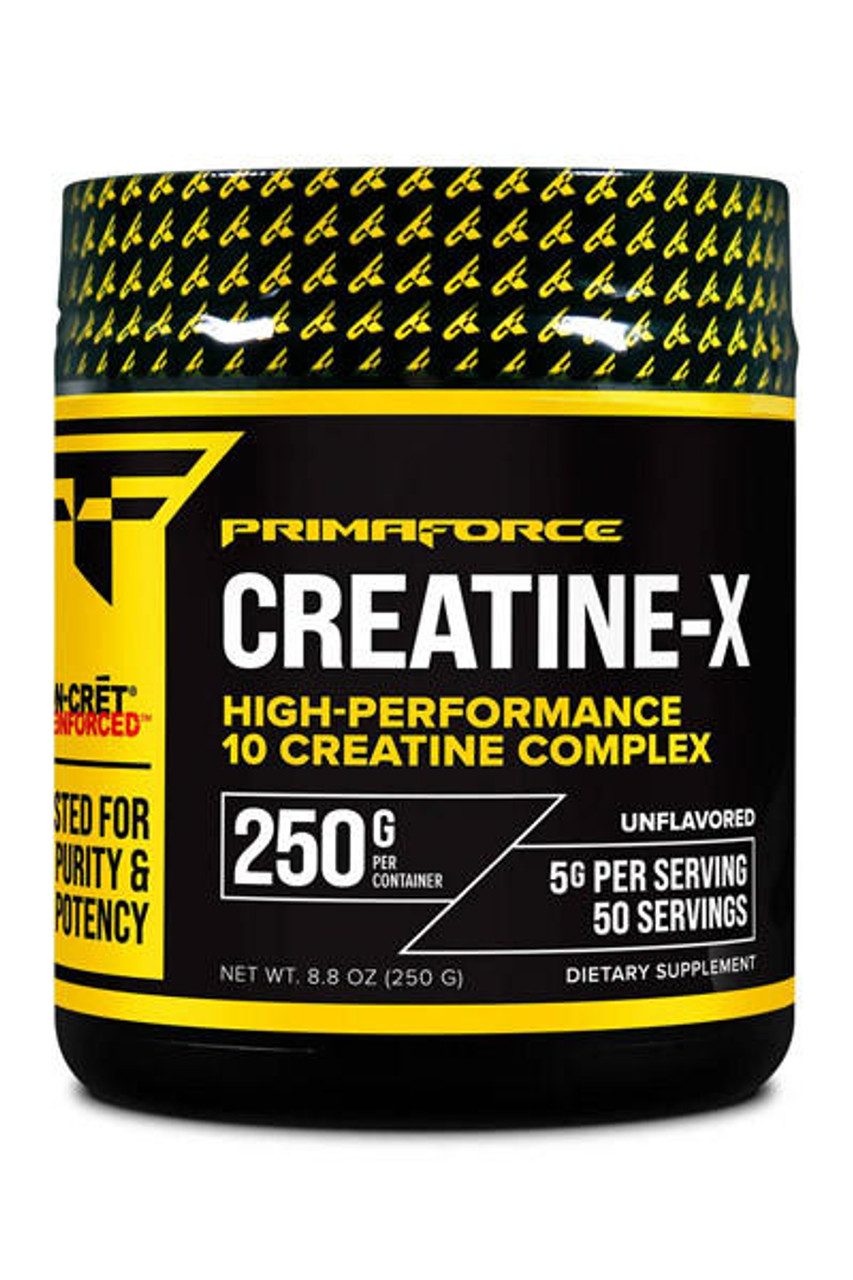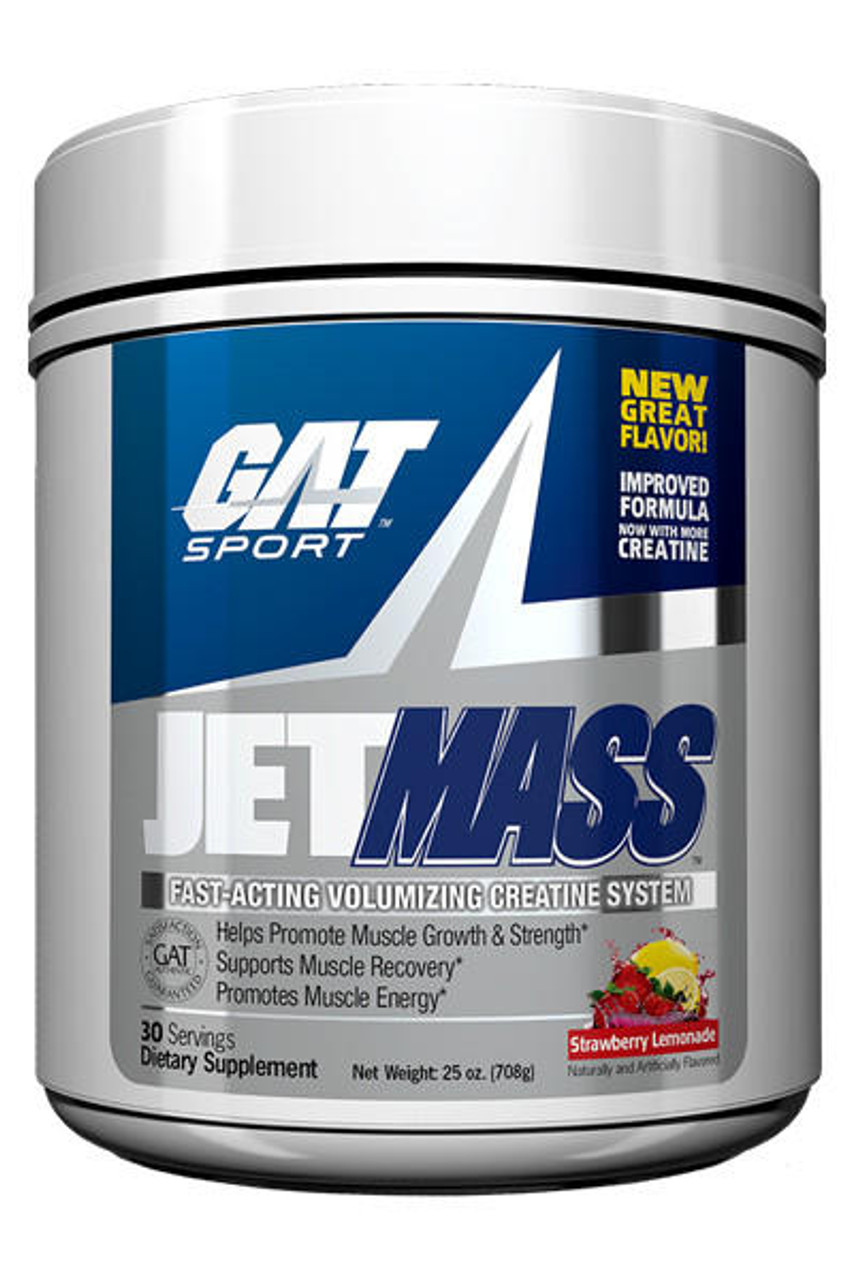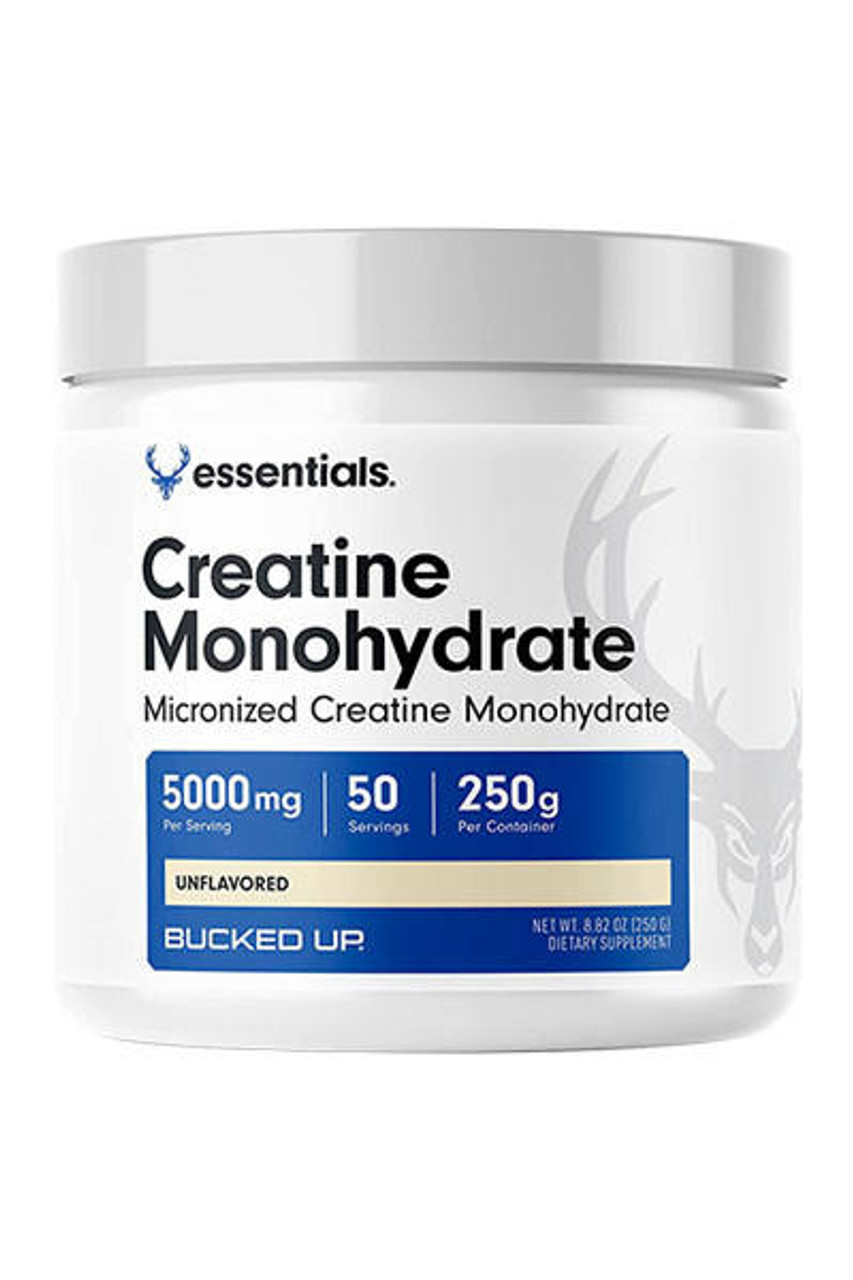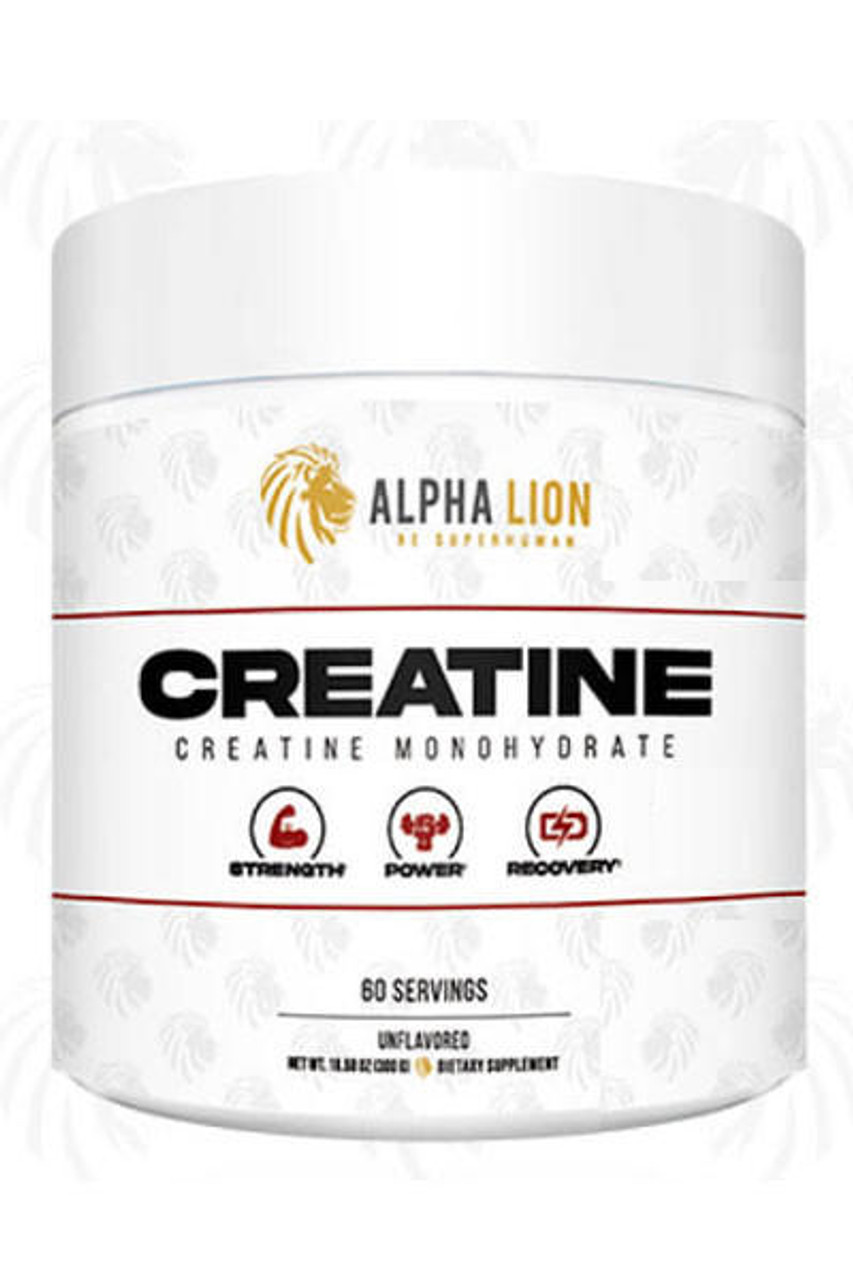Does Creatine Make You Poop? Understanding the Digestive Effects
Posted by Leonard Shemtob on Jun 10, 2024
Many fitness enthusiasts and athletes use creatine supplements to enhance their performance and build muscle. However, a common concern among users is whether creatine causes digestive issues, particularly increased bowel movements.
In this article, we'll explore whether creatine can make you poop more frequently, why this might happen, and what you can do to manage any potential side effects.
[Related] Creatine Vs Pre-Workout: Which One is Better?
Short Summary
- Discusses potential digestive side effects of taking creatine supplements and their impact on digestive health.
- Understand whether creatine intake can lead to changes in bowel habits.
- Delve into the scientific evidence regarding the relationship between creatine and pooping.
- Factors Affecting Digestive Health: Understanding the role of hydration, diet, and overall lifestyle in maintaining digestive balance.
- How to Manage Digestive Issues: Practical tips and strategies for minimizing digestive discomfort while taking creatine supplements.
- Looking for a Creatine Supplement with Minimal Digestive Concerns? Get our expert-recommended Creatine by Psycho Pharma and start your journey to improved muscle strength and endurance without worrying about potential digestive issues.
Related Reads:
What is Creatine?
Creatine is a natural substance found in minor amounts in meat and fish, and it's also produced by the body. It plays a critical role in supplying energy to muscles during high-intensity exercise. When you engage in intense activities like lifting weights or sprinting, your muscles use a compound called ATP (adenosine triphosphate) for energy.
However, ATP is quickly depleted during intense exercise. This is where creatine comes in. Creatine helps replenish ATP levels, allowing your muscles to sustain high-intensity efforts for longer periods. This, in turn, can result in improved strength, power, and performance during workouts.
Benefits of Creatine
Here's a quick rundown of creatine's benefits:
Boosts Strength: Creatine helps your muscles generate more power, leading to increased strength gains in the gym.
Muscle Growth: Creatine supplementation may promote muscle growth by facilitating the production of proteins that are essential for muscle repair and growth.
Improves Performance: Whether you're lifting weights, sprinting, or doing HIIT workouts, creatine can enhance your performance by providing that extra burst of energy.
Faster Muscle Recovery: Creatine helps your muscles recover faster after a workout, reducing soreness and fatigue.
Improved Muscle Endurance: Creatine allows you to work out for longer periods without fatigue.
Common Side Effects of Creatine Supplementation
Creatine is generally safe for most healthy individuals when taken at recommended doses. However, some people might experience side effects, particularly during the initial loading phase (if used).
Here's a look at the most common ones:
Digestive Issues: Creatine can sometimes lead to diarrhea or constipation. This is often linked to increased water intake needed with creatine and can be minimized with proper hydration strategies. Moreover, mild stomach discomfort, including nausea or cramping, can occur in some individuals, particularly when creatine is taken on an empty stomach.
Muscle Cramps: Creatine may contribute to muscle cramps, especially if you're not adequately hydrated.
Weight Gain: Creatine supplementation can result in temporary water retention within muscle cells, causing a slight increase in body weight. This isn't fat gain but reflects the water retention within muscles.
Dehydration: Creatine supplementation can cause the muscles to retain water, leading to an increased risk of dehydration if adequate water intake is not maintained.
Hair Loss: There is limited evidence that creatine causes hair loss, but some creatine users have reported this side effect.
Kidney Strain: There have been concerns that creatine supplementation could potentially strain the kidneys, especially in individuals with pre-existing kidney conditions. However, research has generally not found significant adverse effects on kidney function in healthy people when creatine is used as directed.
[Related] What Are The Side Effects of Creatine?
Does Creatine Make You Poop?
Studies have shown that creatine can cause gastrointestinal issues if not taken properly. However, athletes who take a dosage of 2-5 grams have reported no significant symptoms.
During the loading phase, which typically involves a higher intake of creatine, some individuals may experience violent bowel movements and gastrointestinal stress.
To mitigate these effects, athletes can consider using a creatine monohydrate, which does not require a loading phase or can reduce the dosage to achieve the same results while minimizing gastrointestinal issues. Additionally, mixing creatine with caffeine has been linked to increased gastrointestinal issues.
Additionally, combining creatine with caffeine can exacerbate gastrointestinal problems. A study found that taking 10 grams of creatine once a day increased the risk of diarrhea by 56%.
In contrast, taking 5 grams of creatine twice daily did not significantly increase the risk of diarrhea. Thus, it's advisable to divide the dosage, whether during the loading phase or not, to prevent sudden gastrointestinal stress.
Despite anecdotal accounts suggesting otherwise, there is no credible evidence that digestive problems occur at the prescribed levels. Opting for a reliable, high-quality product is the best approach for ensuring peace of mind.
Factors Affecting Digestive Health
Here's a quick look at some other factors that can impact your digestive health:
Dosage: Using high doses of creatine can increase the risk of gastrointestinal issues.
Diet: A diet low in fiber and high in processed foods can slow down digestion and lead to constipation. Aim for plenty of whole grains, fruits, and vegetables to keep things moving smoothly.
Hydration: Not drinking enough fluids can make your stool hard and difficult to pass. Aim for plenty of water throughout the day to stay hydrated and support healthy digestion.
Underlying Conditions: Certain medical conditions like irritable bowel syndrome (IBS) can also affect your digestion.
Individual Physiology: Each person's body responds differently to supplements and dietary changes. Some individuals may be more sensitive to creatine and experience digestive issues more readily, while others may not notice any changes at all.
How to Manage Digestive Issues While Using Creatine
If you experience digestive issues while using creatine, there are several strategies you can try to manage them effectively:
Adjust the Dosage: Begin with a lower dose of creatine and gradually increase it. This can help your body adjust to the supplement more easily and reduce the risk of digestive discomfort.
Stay Hydrated: Water is key! Creatine draws water into your muscles, so drink plenty of water throughout the day to help your digestive system function smoothly.
Ditch the Loading Phase (Maybe): The loading phase, with its high initial creatine intake, is a common culprit for digestive issues. Consider creatine forms like monohydrate that don't require loading, or try a lower loading dose if you choose to use one.
Improve Diet: Eat a diet rich in fiber, probiotics, and gut-friendly foods to support digestive health. Gradually increasing dietary fiber intake over time ensures that your gastrointestinal tract adjusts appropriately.
Take it With Food: Try consuming creatine with meals. Food can help slow down digestion and potentially reduce the risk of stomach upset.
[Related] Taking Creatine on an Empty Stomach - What You Should Know!
Choose the Right Form: Some forms of creatine, like creatine monohydrate, are easier on the stomach.
Follow Recommended Dosage: Sticking to the recommended creatine dosage (typically 2-5 grams daily) is crucial to minimize digestive side effects. This ensures your body gets the creatine it needs without overwhelming your system.
Best Creatine Supplements with Minimal Digestive Concerns
1- Creatine by Psycho Pharma
Creatine by Psycho Pharma delivers 5g of creatine monohydrate.
Creatine monohydrate is a renowned supplement that has been widely used for years to improve muscle strength, endurance, and performance. It is often recommended as a key component of a well-rounded fitness regimen.
Key Benefits
- It increases your strength.
- It enhances muscle growth.
- It improves endurance.
- It boosts your overall athletic performance.
Key Ingredients
- Creatine Monohydrate
Customer Reviews
 Good stuff
Good stuff
“good stuff, good quality, good price - will order again”
-Dez
2- Creatine-X by PrimaForce
Creatine-X is a high-performance creatine supplement designed for athletes who want to optimize their muscle-building potential. This high-performance Creatine Complex offers 10 types of creatine to support your quest for peak physical performance and muscle gains.
Each serving contains 5 grams of creatine, with a total of 250 grams per container, ensuring your muscles are fueled for growth, recovery, and strength.
Key Benefits
- It improves your strength.
- It enhances your endurance.
- It boosts lean muscle mass.
- It accelerates your muscle recovery.
Key Ingredients
- Creatine Monohydrate
- Creatine Chelate
- CON-CRET® Creatine H
- Creatine Citrate
- Creatine Anhydrous
- Creatine AKG (2:1)
- Creatine Ethyl Ester HCl
- Creatine Pyruvate
- Di-Creatine Malate
- Tri-Creatine Malate
3- Jetmass Creatine by GAT Sport
Jetmass is a premium post-workout formula designed to accelerate muscle recovery and promote mass gain.
It replenishes essential nutrients lost during workouts, ensuring your muscles have what they need to grow and recover effectively.
Key Benefits
- It improves muscle growth.
- It replenishes muscle with muscle-building nutrients.
- It supports muscle hydration
- It promotes muscle recovery.
- It reduces soreness.
- It increases energy levels.
Key Ingredients
- Creatine Monohydrate
- Waxy Maize
- BCAAs
Customer Reviews
 Quick
Quick
“Great product quick recovery good taste No nonsense straight to the point will end up using more often”
-Power
 Decent Stuff
Decent Stuff
“Well dosed, good flavor, mixes easily. A little more expensive than some of the other basic powders, but worth it to avoid clumping, or choking down chalkiness. Have purchased several times.”
-David L.
 LOVE THIS STUFF!
LOVE THIS STUFF!
“Literally the best creatine supplement I have ever taken. Bumped up from 212 to 226 by using two jars as well as a mass gainer protein. It tastes sooooo damn good! (got 1 jar of each flavor. orange creme was definitely my favorite tho) Perfect for a post workout/recovery drink”
-Jamie
4- Creatine Monohydrate by Bucked Up
Creatine Monohydrate by Bucked Up helps you enhance muscle growth, strength, and overall performance. This well-established muscle builder has been widely used in the fitness community for its effectiveness.
This supplement is formulated with high-quality, micronized creatine monohydrate, which is designed to be highly absorbable and effective.
Key Benefits
- It boosts muscle growth.
- It increases lean body mass and muscle volume.
- It enhances your strength and power.
- It improves your exercise performance.
- It helps improve your endurance.
- It accelerates your muscle recovery.
Key Ingredients
5- Creatine Monohydrate by Alpha Lion
Enhance muscle growth, strength, and performance with Creatine Monohydrate by Alpha Lion. This supplement is designed for individuals seeking to maximize their fitness potential.
Alpha Lion's premium-grade, micronized creatine monohydrate provides highly absorbable fuel for your muscles.
Key Benefits
- It promotes muscle growth and repair.
- It supports muscle size and growth.
- It increases cellular water retention.
- It improves strength and power.
- It improves your exercise performance.
- It accelerates muscle recovery.
Key Ingredients
- Micronized Creatine Monohydrate
What to Look for in Supplements to Avoid Digestive Issues
When choosing creatine supplements, it's essential to consider factors that can help minimize digestive discomfort. Here's what to look for:
Form: Opt for creatine monohydrate, which is known for its excellent absorption and minimal digestive side effects compared to other forms.
Quality: Choose supplements that undergo third-party testing for purity and potency, ensuring that you're purchasing a high-quality product.
Dosage: Begin with a lower dosage and slowly increase it to gauge your body's response and minimize the risk of digestive discomfort.
Additives: Avoid supplements containing unnecessary additives or fillers that might contribute to digestive problems. Instead, select products with simple, minimal ingredients.
Hydration: Ensure you are well-hydrated before and during supplementation to minimize digestive issues.
Reviews and Feedback: Seek out user reviews to assess how well the supplement is tolerated concerning digestive health.
Dosage Instructions: Follow the recommended dosage instructions diligently and avoid excessive creatine intake to prevent digestive issues.
Who Can Take Creatine Supplements?
Creatine supplements are generally safe and suitable for various individuals. Here's a simple overview:
Athletes and Fitness Enthusiasts: Creatine can help boost strength, improve performance, and support muscle growth during training.
Bodybuilders: Bodybuilders often use creatine supplements to maximize muscle gains and improve strength during resistance training.
Vegetarians and Vegans: These individuals often have lower creatine stores due to limited dietary sources. Creatine supplementation can help bridge the gap.
Older Adults: Studies suggest creatine might benefit muscle strength and function in older adults, potentially aiding with activities of daily living.
Those Seeking Improved Exercise Performance: Individuals looking to enhance exercise performance, increase endurance, and speed up recovery may also find creatine supplementation beneficial.
[Related] Should Skinny Guys Take Creatine?
Important Note
Creatine supplements are suitable for a wide range of individuals, including athletes, bodybuilders, vegans/vegetarians, older adults, individuals with muscle disorders, and those seeking improved exercise performance.
However, it's always best to consult a healthcare expert before starting any new supplement, including creatine., especially if you have underlying health conditions or concerns.
FAQs: Does Creatine Make You Poop
Q: Are creatine supplements safe?
A: Creatine supplements are generally safe for most people when taken at recommended doses.
Q: Is it true that creatine makes you poop?
A: While creatine itself doesn't directly cause bowel movements, some people may experience digestive issues, such as bloating or diarrhea, when taking creatine supplements. These effects are typically mild and temporary.
Q: How should I take creatine to minimize digestive issues?
A: To minimize digestive issues, start with a lower dosage of creatine and gradually increase it. It's also essential to stay hydrated, choose a high-quality creatine supplement, and consider splitting the dosage throughout the day.
[Related] Creatine Before Bed: Maximizing Your Muscle Gains Overnight
Q: What happens if I stop taking creatine?
A: A 2018 research found that if you stop taking creatine supplements, it can take 4-6 weeks for your muscle's phosphocreatine levels to return to what they were before you started. The authors also mention that research results are mixed regarding the necessity of creatine cycling.
Q: Who should not take creatine?
A: Individuals with kidney disease, liver disease, high blood pressure, bipolar disorder, or certain rare genetic syndromes should consult with a healthcare provider before taking creatine.
Q: Can I take creatine supplements if I'm not an athlete or bodybuilder?
A: Yes, creatine supplements can benefit individuals who engage in regular physical activity, including older adults, those with muscle disorders, and anyone looking to improve their exercise performance and overall fitness levels.
Q: Is creatine safe to take every day?
A: Yes, creatine is generally safe to take daily when used as directed. Various studies have shown that long-term creatine supplementation at recommended doses is safe and well-tolerated for most individuals.
[Related] Is Creatine OK To Take Every Day
Conclusion
In conclusion, creatine supplementation can be a beneficial addition to your fitness regimen, offering advantages such as increased muscle strength, improved exercise performance, and enhanced muscle growth.
While some individuals may experience mild digestive issues when taking creatine, following dosage recommendations, staying hydrated, and choosing the right supplement can help minimize these effects.
It's important to remember that creatine is generally safe when used as directed, and it can be suitable for a wide range of people, including athletes, bodybuilders, older adults, and those seeking improved fitness outcomes.
As with any supplement, it's advisable to consult a healthcare expert before starting a creatine supplementation regimen, especially if you have underlying health problems. They can guide you towards a personalized approach for a smooth and successful fitness journey.
Sources:
https://www.healthline.com/nutrition/creatine-safe...
Written and Sponsored by Leonard Shemtob
Leonard Shemtob is President of Strong Supplements. Leonard has been in the supplement space for over 20 years, specializing in fitness supplements and nutrition. Leonard appears on many podcasts, written over 100 articles about supplements and has studied nutrition, supplementation and bodybuilding.
Leonard's articles have been published in many top publications around the web. Leonard enjoys weight training, playing basketball and yoga, and also enjoys hiking. In his free time he studies and works on improving himself. For more detailed information, visit his official blog.

